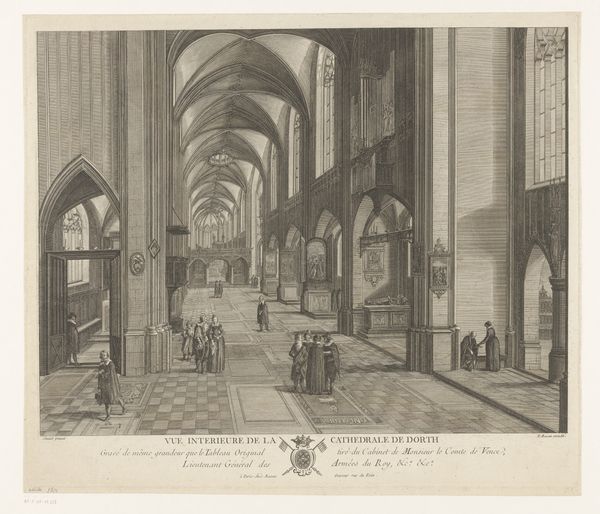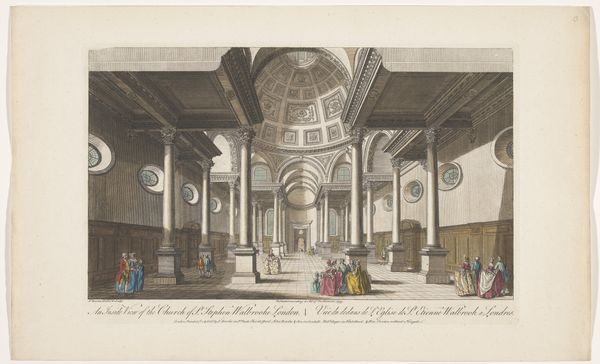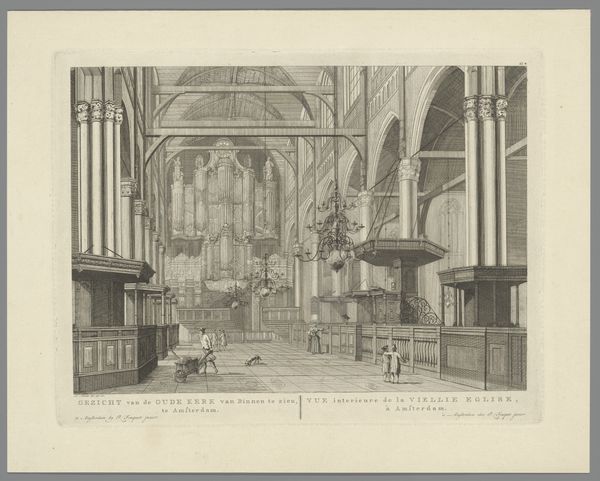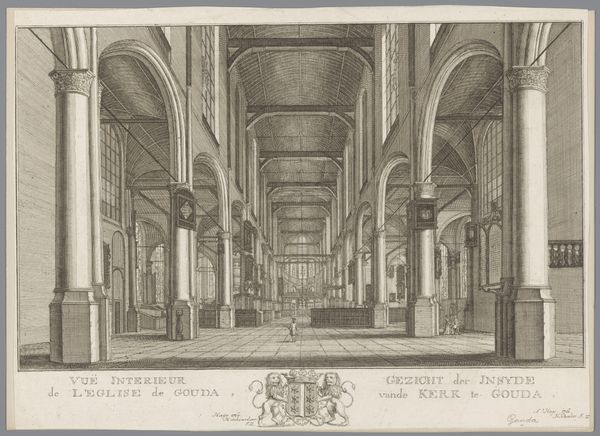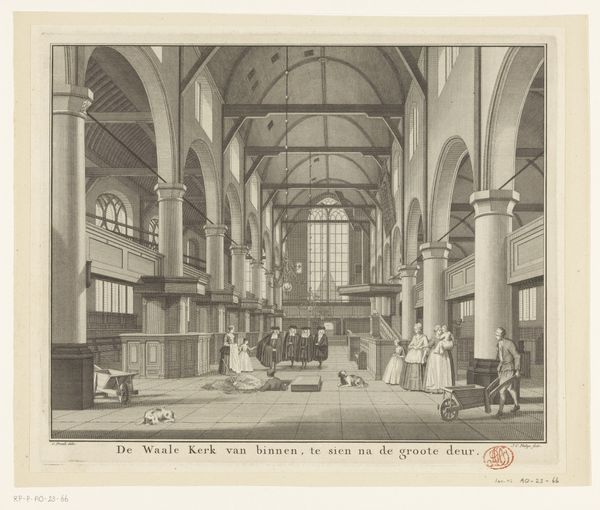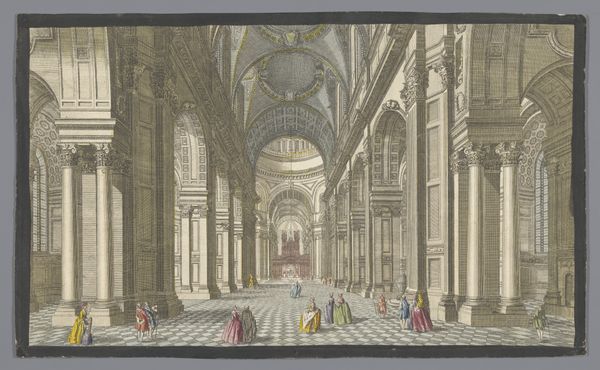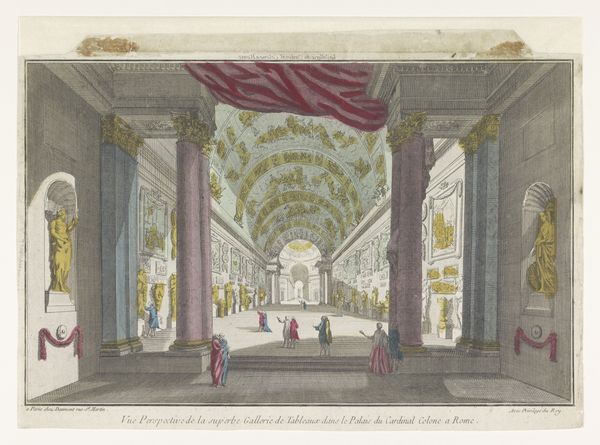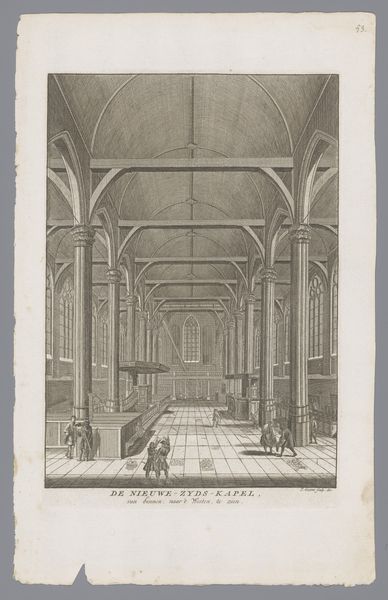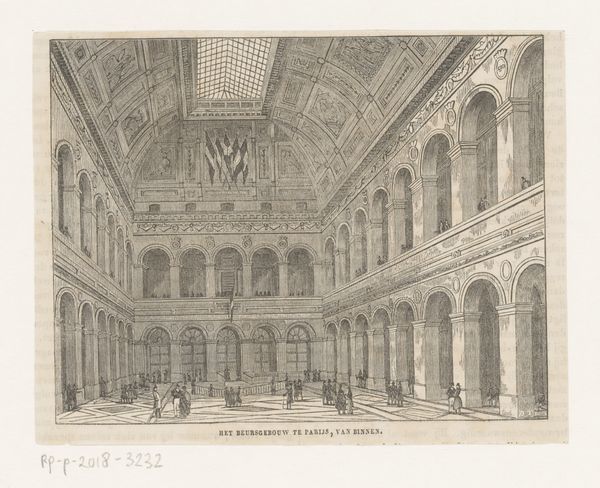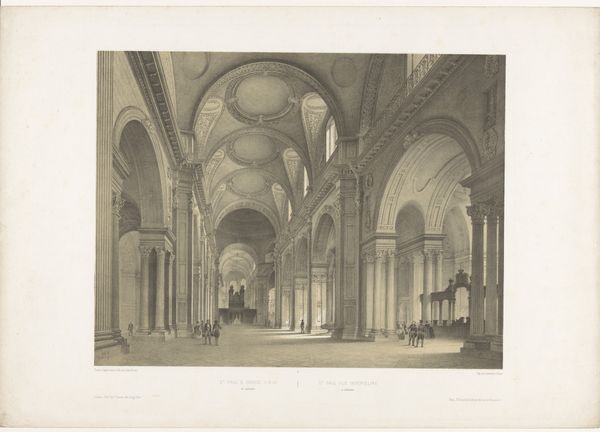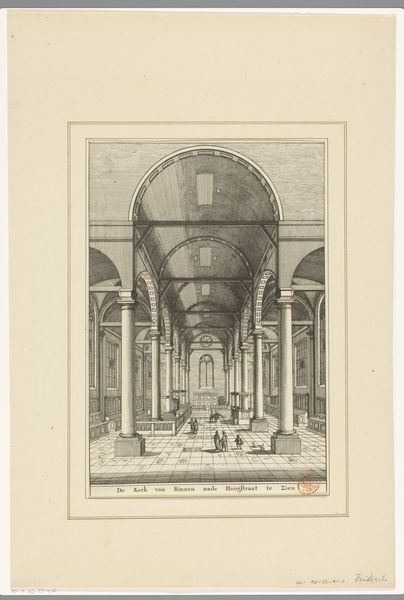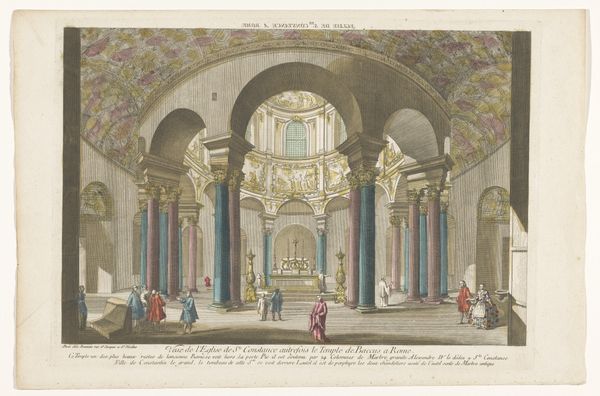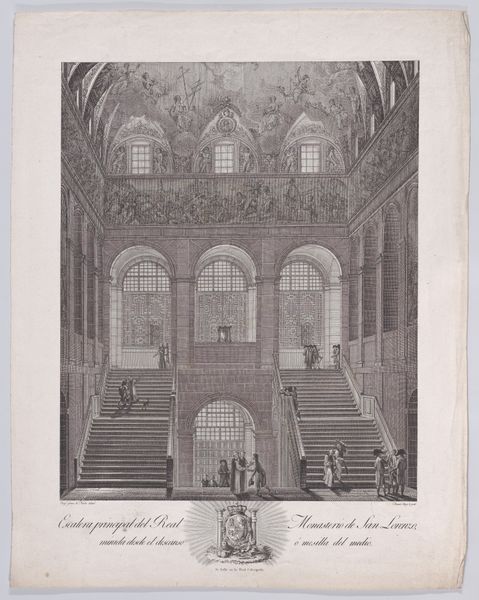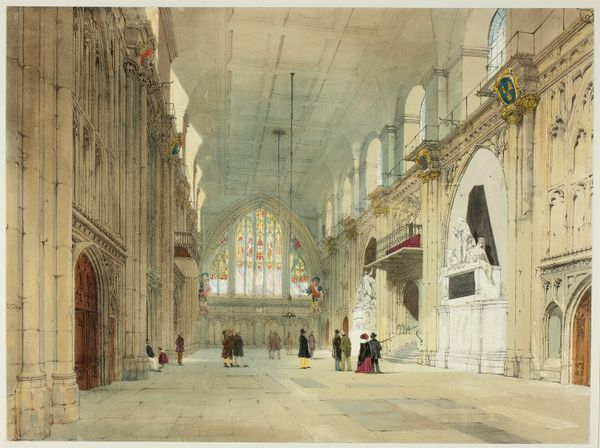
Gezicht op het koor van Saint Paul's Cathedral te Londen after 1752
0:00
0:00
johncaringtonbowles
Rijksmuseum
drawing, print, etching, engraving, architecture
#
drawing
#
aged paper
#
toned paper
#
light pencil work
#
quirky sketch
#
baroque
# print
#
etching
#
sketch book
#
landscape
#
classical-realism
#
perspective
#
form
#
personal sketchbook
#
geometric
#
line
#
sketchbook drawing
#
cityscape
#
watercolour illustration
#
genre-painting
#
history-painting
#
storyboard and sketchbook work
#
sketchbook art
#
engraving
#
architecture
#
realism
Dimensions: height 289 mm, width 432 mm
Copyright: Rijks Museum: Open Domain
Curator: Well, isn’t this an interesting capture? This print, titled "Gezicht op het koor van Saint Paul's Cathedral te Londen", was crafted after 1752 by John and Carington Bowles. The etching, engraving, and drawing mediums give it an exquisite detail. What catches your eye about it? Editor: Immediately, I'm struck by the vastness—that cavernous interior. I feel like an ant lost in a forest of columns and soaring arches, dwarfed by the scale and yet strangely uplifted by all that light pouring in. There is a quiet monumentality that resonates deeply. Curator: Absolutely. The architecture is primary, dictating all activity inside. You get a real sense of the labor and resources involved, reflecting colonial ambition and England’s mercantile strength. The way the paper has toned also highlights the craft history. Editor: True, it's grand in vision and aspiration. Yet those figures scattered across the floor... they bring such humanity, softening the severity of all the stone. They're like brushstrokes adding narrative life. Did the artist collaborate with colorists, I wonder, for the pink and golden tones? Curator: It’s quite possible! Think about printmaking in London back then; you have division of labor and specialization of skill. While John and Carington Bowles are credited, other artisans most likely contributed. The final commercial print becomes a collective result! Editor: It makes you appreciate the collaborative act, the collective energy in bringing this moment to us centuries later. Even the quirks of the aged paper—it adds something profound. The building dwarfs all who are here! Curator: Yes, time itself is a collaborator, leaving its mark on the object and our understanding of it. This print, originally made to mass sale in the British landscape, speaks to social life beyond elite portraiture and history painting. Editor: In a way, the print, in capturing this space, is claiming territory in its own way. A miniature dominion that echoes the vast world outside its walls, a delicate power on aged paper. A little colonial endeavor itself. Curator: Precisely. Thank you! I now observe a different dimension to this print; one where economic production meets art. Editor: The conversation unfolds! Always something more... I find that to be incredibly optimistic.
Comments
No comments
Be the first to comment and join the conversation on the ultimate creative platform.
